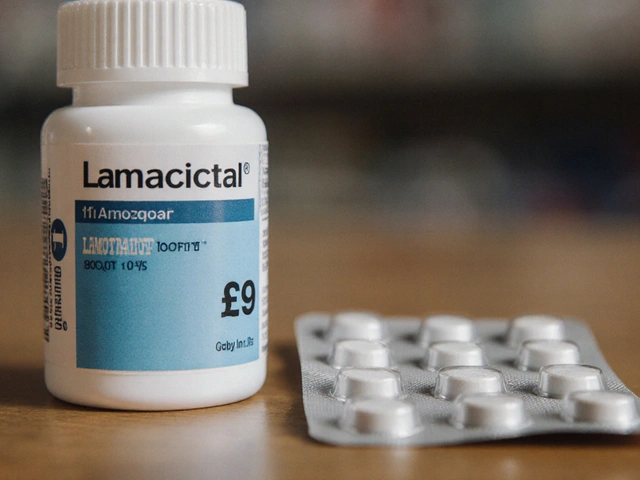Why Patients Skip or Forget Medications: Common Barriers to Adherence
December 15 2025Donepezil — what it does and how to use it
Donepezil is a commonly used medicine for people with mild to moderate Alzheimer’s disease. It won’t cure Alzheimer’s, but it can help with memory, thinking, and daily tasks for some months or longer. If you or a loved one is starting donepezil, this guide gives the basics: how it works, typical doses, side effects to watch for, and simple safety tips you can use right away.
How it works and who it's for
Donepezil is an acetylcholinesterase inhibitor. That just means it helps increase levels of a brain chemical called acetylcholine, which plays a role in memory and thinking. Doctors usually prescribe it for mild to moderate Alzheimer’s, and sometimes for other memory conditions. It’s prescription-only — a doctor needs to check if it’s a good fit, especially if you have heart problems, stomach ulcers, or a history of seizures.
Dosage, side effects, and safety tips
Typical starting doses are low and then increase after a few weeks. For adults, doctors often start with 5 mg once daily, then may move to 10 mg daily if tolerated. A slower increase helps reduce side effects. Take donepezil at the same time each day — many people take it at bedtime because it can cause vivid dreams or mild sleep changes.
Common side effects are nausea, diarrhea, muscle cramps, and trouble sleeping. Some people feel tired or notice weight loss. Less common but more serious reactions include fainting, slow heartbeat, severe vomiting, or signs of a stomach bleed (black stools or coffee-ground vomit). Call emergency services or your doctor right away if any of those happen.
Watch for drug interactions. Drugs that block acetylcholine (some cold medicines and certain antipsychotics) can reduce donepezil’s effect. Also tell your doctor about blood pressure meds, heart rhythm drugs, NSAIDs, and supplements. If you’re unsure, bring a list of all pills to your appointment.
Small practical tips: give the pill with or without food — find which works best for comfort. Track doses on a simple chart or use a pill box to avoid missed doses. If a dose is missed and it’s close to the next one, skip it and resume the regular schedule; don’t double up.
Caregivers: note changes in daily function and mood over weeks, not days. Keep a short log of sleep, appetite, confusion, and new symptoms to share with the doctor. Improvement, if it happens, usually appears over 4–12 weeks.
Buying donepezil online? Only use licensed pharmacies and require a prescription. Check for pharmacy credentials, reviews, and clear contact info. If an online seller offers large discounts without needing a prescription, it’s a red flag.
Ask your clinician direct questions: how long to try donepezil, what signs mean it’s helping, and when to stop. That keeps decisions clear and practical for you and your caregiver.
 5 Jan
5 Jan
Enhancing Executive Function with Donepezil: A Deeper Dive
Donepezil, a well-known medication for Alzheimer's treatment, is gaining attention for its potential positive impact on executive functioning. This article dives into the ways Donepezil might assist in sharpening decision-making, improving attention, and boosting problem-solving skills. By exploring the drug's effects on certain cognitive faculties, readers can better understand how it extends its benefits beyond memory support. We also analyze scientific studies to shed light on the promising shifts Donepezil can bring to cognitive health.
Read More...




